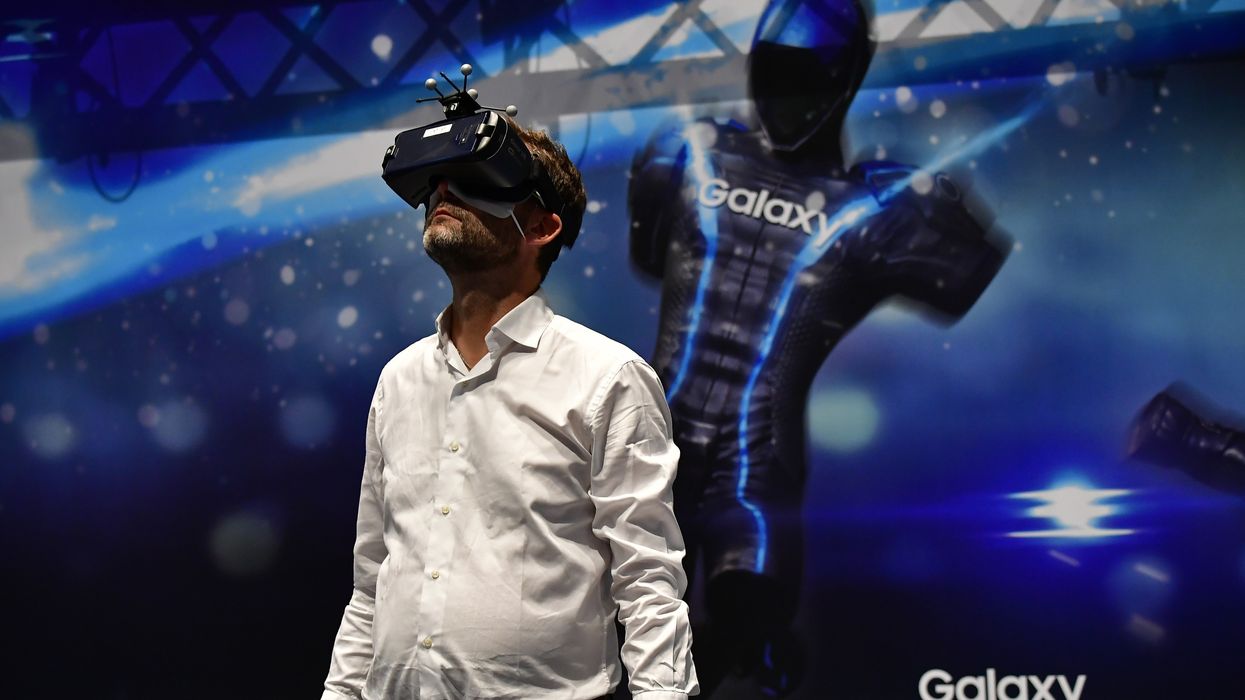Highlights:
- Samsung launches Galaxy XR mixed reality headset in partnership with Google and Qualcomm
- Priced at $1,800, roughly half the cost of Apple’s Vision Pro
- Positioned as a step toward developing future smart glasses
Samsung enters the mixed reality race
Samsung has stepped into the growing mixed reality market with the launch of the Galaxy XR, a headset created in collaboration with Google and Qualcomm. The device, available for $1,800, aims to compete directly with Apple’s Vision Pro and Meta’s Quest headsets.
Seventeen years after the iPhone sparked the smartphone revolution, tech companies continue to search for the next big computing platform. For Samsung and Google, the Galaxy XR represents their latest attempt to merge digital content with the real world through a wearable display.
Features and early access benefits
The Galaxy XR delivers an immersive experience where users can view and interact with apps and videos floating in front of them. Its external cameras project a live view of the real world onto twin 4K displays, allowing wearers to move freely without losing spatial awareness.
Users can navigate using hand gestures, voice commands, or both. Early buyers will receive a year of Google Gemini Advanced and YouTube Premium at no extra cost.
Visually, the Galaxy XR bears a strong resemblance to Apple’s Vision Pro, featuring a curved glass front, metallic accents, and an external battery pack connected by a cable.
A step toward smart glasses
Samsung and Google describe the Galaxy XR as a “stepping stone” toward lightweight smart glasses. The companies are reportedly working with eyewear makers Warby Parker and Gentle Monster to bring future versions to market.
These upcoming devices will integrate Google’s Gemini assistant, which also powers interactions inside the Galaxy XR. During a recent demonstration in New York, Gemini was shown organizing virtual app windows, answering questions about landmarks in Google Maps, and generating short videos through Google’s Veo tool.
While not revolutionary, the feature offered smoother voice control and multitasking than Apple’s current headset, which lacks generative content capabilities.
Familiar concerns over privacy and practicality
Despite the technological advances, privacy questions linger. Gemini’s functions rely on cloud processing, meaning user data must be transmitted to Google’s servers. Without a local processing option similar to Apple’s private cloud approach, the system could raise concerns among privacy-conscious users.
The challenge for Samsung and Google will be convincing consumers that headsets, and eventually smart glasses, can become mainstream devices. Meta has sold about two million pairs of its Ray-Ban smart glasses over two years, a fraction of Apple’s annual 200 million iPhone sales.
For now, the Galaxy XR offers a glimpse of a possible future for wearable computing, but the idea of replacing smartphones with glasses remains distant.















